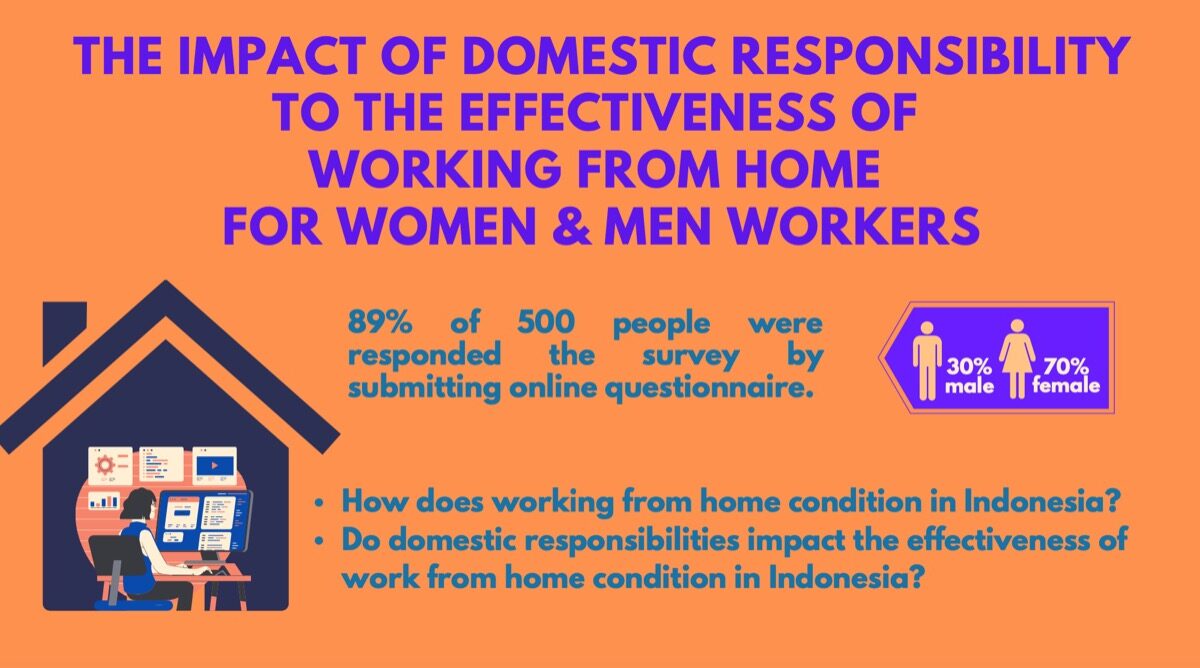
Global Gender Gap Report 2020 : It Takes 99 Years More To Achieve Gender Equality!
December 13, 2023
Investing in Women Survey: Low-Income Employees Suffer Income Loss During Pandemic
December 13, 2023The Coronavirus (CoVid-19) pandemic started in early 2020 and has had a global impact. Since there is no vaccine – physical distancing and hygiene practices are the only actions that slow the spread of this virus. As of 3 May 2020, Indonesia had 11,192 confirmed COVID-19 cases and an 8% fatality rate which is higher than the international average rate at 7%.
In mid-March 2020, all schools and universities started distance learning from home, and some companies started using work from home practices. By April, President Jokowi released Government Regulation Number 21 of 2020 concerning Large-Scale Social Limitation Guidelines (PSBB) within the Framework of Accelerating the Management of Corona Virus 2019 (Covid-19). PSBB is designed since epidemiological considerations, the magnitude of threats, effectiveness, resource support, operational, technical, economic, social, cultural, and security considerations.
This exploratory research considers the likely gendered effects of COVID-19 along the government’s regulation on PSBB by applying working and learning from home. School closures exacerbate women’s unpaid work, as the primary caregivers for children, and exert a disproportionate impact on working mothers (Prospera, 2020)
This problem is especially severe for single-parent households that may be left with no income at all if the mother, the sole earner, is forced to stop work to care for children (Alon, 2020).
Indonesia Business Coalition for Women Empowerment (IBCWE) implemented the research survey to describe the domestic responsibilities of male and female workers while working at home in Indonesia, especially in the urban area and how is the impact to effectiveness of working from home.
The data The data collection was conducted by online questionnaire with quantitative method and descriptive analyses. By the result, we got 89% (446) response rate of the target (500 / 100%).
Overall, the female workers have the higher frequencies in performing their domestic responsible than the male workers while working from home, since the male workers are tending to involve their spouse in performing their domestic responsibilities rather than by themselves. The data shows that the domestic responsibilities for female and male workers influences the effectiveness of working from home practices, especially for those whom living with the dependents.





